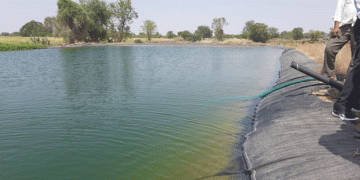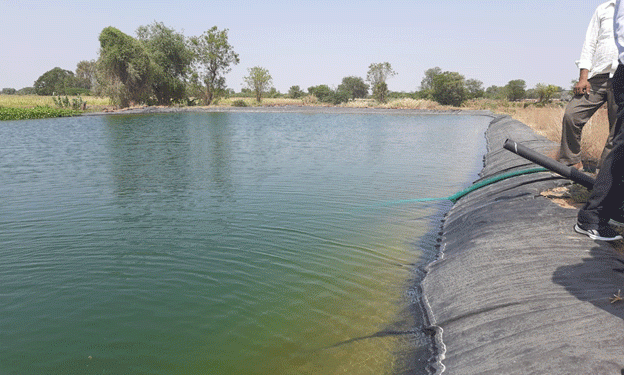In a bid to promote water efficiency and sustainable farming practices, the Agriculture Department has revised its subsidy policy for farm ponds. Effective immediately, farmers in Jodhpur can only receive subsidies for farm ponds if they also install sprinkler or drip irrigation systems. This initiative aims to optimize water usage and support agricultural productivity in the region.
Efficient Irrigation Systems Now Mandatory
The revised policy mandates the installation of either sprinkler or drip irrigation systems as a prerequisite for receiving government subsidies on farm ponds. This move is designed to encourage the adoption of efficient irrigation technologies that significantly reduce water wastage. According to the Food and Agriculture Organization (FAO), drip irrigation can save up to 50% more water compared to traditional methods, while sprinkler systems offer similar benefits by minimizing evaporation and runoff.
Expansion of Farm Ponds in Jodhpur
Under this initiative, Jodhpur will see the construction of 578 new farm ponds. These ponds are crucial for rainwater harvesting and groundwater recharge, providing a reliable water source during dry spells. A study by the Central Ground Water Board highlights that farm ponds can increase groundwater levels by up to 20%, contributing to more sustainable water management in agricultural areas.
Flexibility for Joint Landholders
The new policy also introduces flexibility for farmers with joint landholdings. Farmers can now build separate farm ponds on joint land, provided there is mutual consent among the co-owners. This provision ensures that all farmers, regardless of their landholding status, can benefit from the subsidy and improve their irrigation practices.
Benefits of the Initiative
The dual focus on farm ponds and efficient irrigation systems is expected to bring several benefits:
- Water Conservation: Efficient irrigation systems reduce water usage, ensuring sustainable water management.
- Increased Crop Yield: Studies have shown that drip and sprinkler irrigation can enhance crop yields by delivering water directly to the root zone, promoting better growth.
- Cost Savings: Reduced water consumption translates into lower irrigation costs for farmers, increasing their profitability.
- Environmental Impact: Improved water management helps in maintaining soil health and preventing waterlogging and salinization.
The Agriculture Department’s new subsidy policy is a forward-thinking approach to tackle water scarcity and promote sustainable agriculture. By tying subsidies for farm ponds to the installation of efficient irrigation systems, the initiative not only conserves water but also enhances agricultural productivity. This policy, with its flexible provisions for joint landholders, ensures that more farmers can participate and benefit from these advancements.































